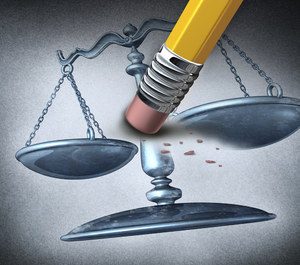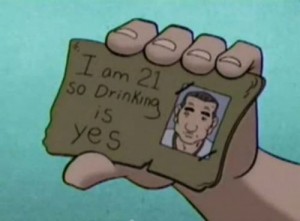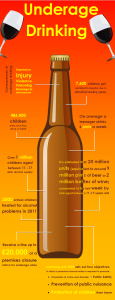Expungement in North Carolina – a second chance made easier
Saturday, August 5th, 2017 It happens so easily—one makes a bad choice, gets misunderstood, or falsely accused, and in the result faces criminal charges. Regardless of the outcome in a criminal matter—even in case of a wrongful criminal charge—the fact that one was criminally charged will result in a criminal record. Unless dealt with appropriately, a criminal record may create a virtuous circle and negatively affect one’s chances in the job market, in college applications, on the housing market, etc. In an attempt to mitigate or avoid negative consequences of one’s criminal record, one should consult with an attorney about whether or not they are eligible for an expunction of their criminal record and if eligible, pursue the expunction.
It happens so easily—one makes a bad choice, gets misunderstood, or falsely accused, and in the result faces criminal charges. Regardless of the outcome in a criminal matter—even in case of a wrongful criminal charge—the fact that one was criminally charged will result in a criminal record. Unless dealt with appropriately, a criminal record may create a virtuous circle and negatively affect one’s chances in the job market, in college applications, on the housing market, etc. In an attempt to mitigate or avoid negative consequences of one’s criminal record, one should consult with an attorney about whether or not they are eligible for an expunction of their criminal record and if eligible, pursue the expunction.
An expunction, also called expungement, is a process ordered by the court in which one’s criminal record is “sealed”, or erased.
Thanks to Gov. Roy Cooper who ratified Senate Bill 445 on July 28, 2017, the accessibility of the expunction process will be improved drastically for about 2 million North Carolinians who currently have a criminal record effective December 1, 2017. Here are the two expungements we mostly pursued in our office:
- Expungement of records when charges were dismissed pursuant to N.C.G.S. §15A-146
There will no longer be a limit on how many expunctions one can pursue—the only condition will be that one “had not previously been convicted of any felony under the laws of the United States, this State, or any other state”.
- Expunction of “nonviolent” misdemeanors and felonies pursuant to N.C.G.S. §15A-145.5
In order to qualify for an expunction under this section, one may not have “other misdemeanor or felony convictions, other than a traffic violation”. While under the current law, one needs to wait 15 years after the date of the conviction or “when any active sentence, period of probation, and post-release supervision has been served, whichever occurs later” , under the new law that wait time will be reduced to just five years for misdemeanors and ten years for felonies.
If you or someone you know have a criminal record and consider pursuing an expungement in New Hanover, Pender, or Brunswick Counties, North Carolina, call Collins Law Firm at (910) 793-9000 for a confidential consultation.
By Jana H. Collins, Office Manager

 This holiday season AAA is expecting 103 million Americans to travel, which is nearly 1.5 million more people than last year. While many people choose to fly to their Christmas destinations, AAA is predicting that more people will be driving this year than previous years. It is very important that those driving, no matter the distance, are prepared for their travel. Make sure you’ve recently gotten an oil change, check your tires to make sure they have the right pressure, never let your gas tank get below ¼ of a tank while traveling, and secure all luggage in your car.
This holiday season AAA is expecting 103 million Americans to travel, which is nearly 1.5 million more people than last year. While many people choose to fly to their Christmas destinations, AAA is predicting that more people will be driving this year than previous years. It is very important that those driving, no matter the distance, are prepared for their travel. Make sure you’ve recently gotten an oil change, check your tires to make sure they have the right pressure, never let your gas tank get below ¼ of a tank while traveling, and secure all luggage in your car. Brunswick, New Hanover, and Pender counties are all experiencing mandatory water restrictions that were put into place on October 13th due to a pipe break in Riegelwood. The Lower Cape Fear Water and Sewer Authority’s pipe supplies water to utilities to all three of these counties. This pipe break is affecting areas such as Wrightsville Beach, Carolina Beach, Kure Beach, Leland, Wilmington, etc.
Brunswick, New Hanover, and Pender counties are all experiencing mandatory water restrictions that were put into place on October 13th due to a pipe break in Riegelwood. The Lower Cape Fear Water and Sewer Authority’s pipe supplies water to utilities to all three of these counties. This pipe break is affecting areas such as Wrightsville Beach, Carolina Beach, Kure Beach, Leland, Wilmington, etc. You may want to think twice before using a fake ID in New Hanover or Pender County from now on. Starting October 1, you will face more penalties in court if you are caught using a fake ID.
You may want to think twice before using a fake ID in New Hanover or Pender County from now on. Starting October 1, you will face more penalties in court if you are caught using a fake ID. The resentment towards police departments by community activists who have portrayed law enforcement as racist who routinely shoot black Americans, for essentially no reason, has caused a substantial increase in shootings and murders all across the United States in recent years. This idea has become what is known as “The Ferguson Effect.”
The resentment towards police departments by community activists who have portrayed law enforcement as racist who routinely shoot black Americans, for essentially no reason, has caused a substantial increase in shootings and murders all across the United States in recent years. This idea has become what is known as “The Ferguson Effect.” Summer is drawing to an end and college classes are set to resume in a few weeks. For many, the beginning of college is full of excitement, as students are no longer under the watchful eyes of their parents. Unfortunately, this lack of parental supervision tempts many into making decisions that they would not normally make. Often times, temptations such as underage drinking and/or using a fake ID cause bad situations for those caught breaking the law. When caught by law enforcement, reality sets in and can cause panic: How should you handle these charges? How will charges such as these affect my future? What will my parents or coach say? What is my next step?
Summer is drawing to an end and college classes are set to resume in a few weeks. For many, the beginning of college is full of excitement, as students are no longer under the watchful eyes of their parents. Unfortunately, this lack of parental supervision tempts many into making decisions that they would not normally make. Often times, temptations such as underage drinking and/or using a fake ID cause bad situations for those caught breaking the law. When caught by law enforcement, reality sets in and can cause panic: How should you handle these charges? How will charges such as these affect my future? What will my parents or coach say? What is my next step? This past Memorial Day weekend, Wilmington officials reported numerous traffic violations and accidents. According to news sources, there were approximately six deadly crashed that occurred throughout the state, one of which tragically took the lives of a newborn and toddler in Pender County. In all, seven people lost their lives in these accidents over the weekend. Half of these incidents occurred in the Cape Fear region. The number of fatal crashes has reduced since last year, however, one life lost is still one too many. Always wear your seatbelt and be alert and aware of your surroundings.
This past Memorial Day weekend, Wilmington officials reported numerous traffic violations and accidents. According to news sources, there were approximately six deadly crashed that occurred throughout the state, one of which tragically took the lives of a newborn and toddler in Pender County. In all, seven people lost their lives in these accidents over the weekend. Half of these incidents occurred in the Cape Fear region. The number of fatal crashes has reduced since last year, however, one life lost is still one too many. Always wear your seatbelt and be alert and aware of your surroundings.
 Generally, the fact that one was charged with a crime remains on their record regardless of the disposition of the charge, unless the charge gets expunged. An expungement in North Carolina is the eradication of one’s criminal record by court order. The effects of an expunction or expungement are outlined in N.C.G.S. § 15A-153 and include that upon expunction one may truthfully and without committing perjury or false statement deny or refuse to acknowledge that the criminal incident occurred.
Generally, the fact that one was charged with a crime remains on their record regardless of the disposition of the charge, unless the charge gets expunged. An expungement in North Carolina is the eradication of one’s criminal record by court order. The effects of an expunction or expungement are outlined in N.C.G.S. § 15A-153 and include that upon expunction one may truthfully and without committing perjury or false statement deny or refuse to acknowledge that the criminal incident occurred. A traffic ticket can cause a lot of headache. It starts with embarrassment when the blue lights come up in your rear view mirror and when you have to sit on the side of the road while the officer investigates and issues your ticket and it continues far beyond. If you receive a traffic ticket, you should consult with an attorney on how to best handle your ticket.
A traffic ticket can cause a lot of headache. It starts with embarrassment when the blue lights come up in your rear view mirror and when you have to sit on the side of the road while the officer investigates and issues your ticket and it continues far beyond. If you receive a traffic ticket, you should consult with an attorney on how to best handle your ticket.